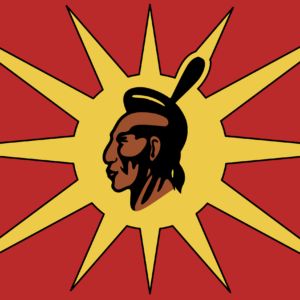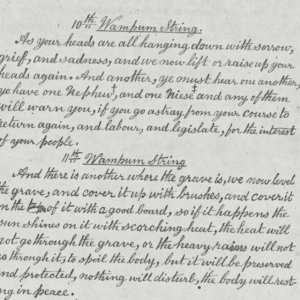
At times it seems like we are on the cutting edge of indigenous news, breaking the latest and greatest stories that affect our nations. But we are quickly brought back to reality when we notice some wild bush dogs eating garbage that was left on the front porch.
Explaining life on Six Nations to people who aren’t used to reservation culture takes time.
So many questions arise. Why does the well water smell like egg farts? Why do the wise and respected elders love country music so much? What’s up with men peeing outside all the time? Who owns all these dogs and why aren’t they tied up? Why is deep fried scone a traditional food if it’s made with flour? We could go on and on.
Too often, visitors come to Six Nations with wild expectations and are disappointed when they realize there are no teepee’s, horses or crazy hairdo’s (mullets excepted). Still, we assert that our culture still exists within a multi-layered disguise of the mundane. We who live here know that Six Nations is a magical place for those who really look.
Take the bush dog for example.
In the city these creatures are called strays. But on Six Nations they are called bush dogs. We say these animals aren’t stray because they know exactly where they are going. They have a mind of their own and act according their own goals and purposes. Bush dogs have freedom and autonomy.
Right now there is a small pack of them at Mohawk Road and 2nd Line who just lay near the stop sign soaking up the sun and enjoying their little lives. They are like homeless people who don’t beg.
We are sometimes criticized by animal rights activists and others who say that it is animal cruelty. This is the culmination of a gigantic clash of worldview that has been happening since 1492.
The colonial mindset says that animals must be domesticated and dogs must be given a caring and loving home. It is fallout from the ancient biblical scripture of Genesis 1:28 that says “fill the earth and subdue it. Rule over the fish in the sea and the birds in the sky and over every living creature that moves on the ground.”
The indigenous mindset says that animals should be free and are not meant to be ruled because they are living entities that are equal to us and must be treated with respect. Often times a child gets a puppy for free and the family will take care of it but refuse to tie it up or restrict it.
This is a cultural decision because we know what it’s like to be oppressed.
So then, the dog will start hanging around with the wrong crowd and voila! It magically transforms into a wild bush dog, running through the concessions in a pack reverting back into its natural self – decolonized and free.
If he should decide to return home, good. It gets fed and loved and taken care of. But the bush dog is free to hit the road like the lyrics for the Canadian television show The Littlest Hobo, who by the way was basically a celebrity bush dog:
There’s a voice that keeps on calling me, down the road that’s where I’ll always be
Every stop I make, I make a new friend
Can’t stay for long, just turn around and I’m gone again
Maybe tomorrow I’ll want to settle down
Until tomorrow I’ll just keep on moving on






